“April Showers” by Janet Sebastian-Coleman (Togo)

Janet Sebastian Coleman (Togo 2023-25)
I woke up this morning to rain on the roof. It was nearing six a.m., which is usually the hour Zorro, my puppy, begins to make sad little whines and stares at me through the mosquito net. As the rain started Zorro got up, walked over to a more secure corner of the floor, and curled himself up into a little ball. I rolled over and let the rain ease me back into half-sleep.
I love how slow a rainy morning is. Certainly no need to leap out of bed. And when the sound of rain on the roof softens, my body is still so relaxed that climbing out of bed is a long enjoyable stretch. The plans for the day haven’t yet set on my shoulders.
This slowness is especially luxurious after a few months during which time seemed to grow faster by the day. I’m stunned to even be writing about “April Showers” — surely it’s only part way through February, now?
I was talking to a friend (fellow volunteer) yesterday about this speeding up of months, these days slipping by. Both of us had thought Peace Corps would be a period in our lives with a healthy amount of boredom, which would lead us to pursue creative projects left on the back burner during school and other jobs. Instead, we’ve found ourselves completely busy some days, utterly exhausted others, and often both. With another friend a couple of weeks ago, we lamented that we have hardly been reading lately, and we’re looking forward to rainy afternoons to catch up on our reading.
Likewise, you can thank the rain in northern Togo this morning for allowing me to send you a letter home. I am learning how much of my time here is a steep climb — for my job(s) in village, for my commitments to Peace Corps as an organization, for my language skills, for my cultural integration, and for knowing myself and becoming who I want to be. While climbing up this mountain, there have been moments with lovely views; but I have not yet reached a vista that allows me to look down and see the path I’ve climbed. I look forward to that vista. I look forward to the mountain top — if there is one.
Progress is being made on my projects in village. I’m often hopeful that things are moving along. The first round of my personal garden is winding down, but I’m beginning to plan for the next phase. I’v been collecting seeds from favorite peppers from the market, as well as from my own tomato plants. I may try sticking some cloves of garlic into the ground while I’m at it. I was given marigold seeds, and I’m very much looking forward to having a plant simply for the sake of its prettiness.
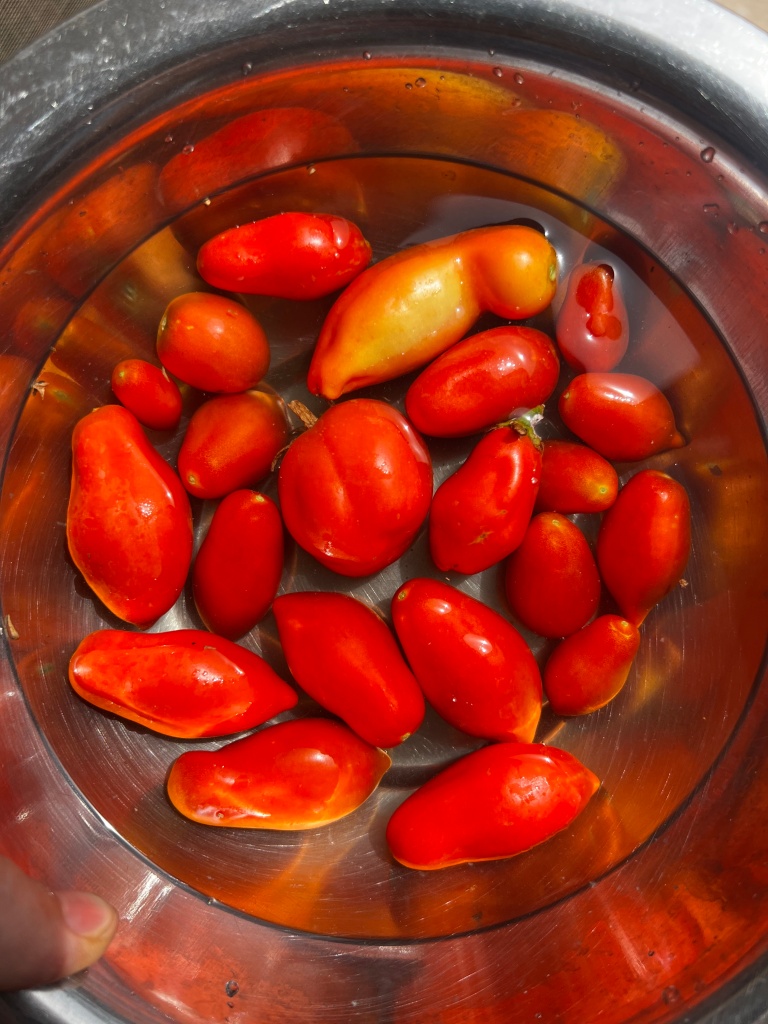
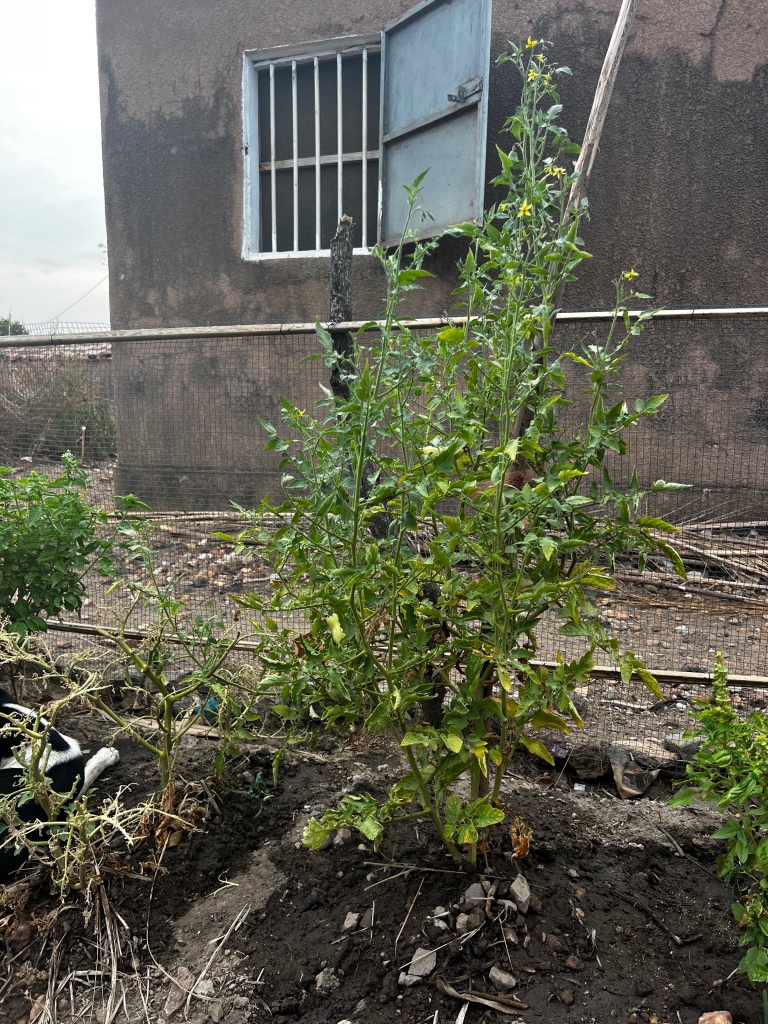
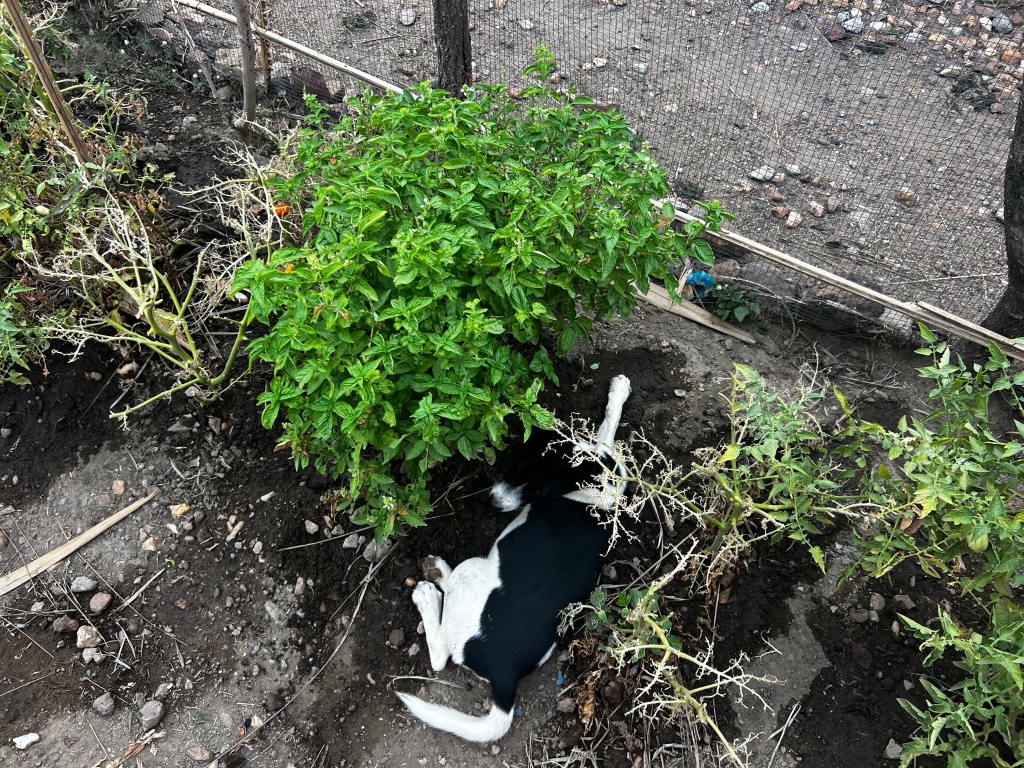
Above – the last of the tomatoes from first round of plants, the last fully fully healthy tomato plant, and the basil that will survive absolutely anything (plus a puppy that is always seeking cooler ground).
The school garden has been planted. Tomato seedlings are coming up well, along with some chiles and basil, but much of the rest seems to have disappeared while I was away at the end of March. A bit disappointing for me, but more concerning were my students reactions to this loss.
Some of my most engaged students were quite discouraged. During my first couple days after returning to site, but before getting a chance to check in on the garden itself, I bumped into those students who said, “Madame . . . Le jardin . . . il y a les problems”; “chez nous . . . Ca ne marche pas”; and “c’est seulement les tomates . . .”
With sad looks and sighs — this sense that there are so many problems in the garden, and gardens can’t work here, and there’s only tomatoes coming up — I was worried I’d find a desert with a few tomatoes in the garden.
In fact, it was not the end of the world. My eldest students and most engaged students from both my classes had been diligently watering and taking notes for our gardening journal. Not everything was growing, but plenty was off to a good start.
For the next couple of weeks, I’m focusing my lessons around problem solving: how do we understand a problem in order to find a solution? how do we work together as a team? what to do with disappointing results? Most of all, I’m trying to make my students celebrate what’s working. We are going to have so many tomatoes! Delicious tomatoes! Pretty red tomatoes to bring home and show your parents and cook some sauce!
New projects are coming along as well.
I’ve been talking to leaders in a neighborhood who seem very interested in working together, so I toured the neighborhood to look at the state of chicken coops and goat and sheep pens. I offered some basic advice and plan to return soon and promote improved housing and care for animals.
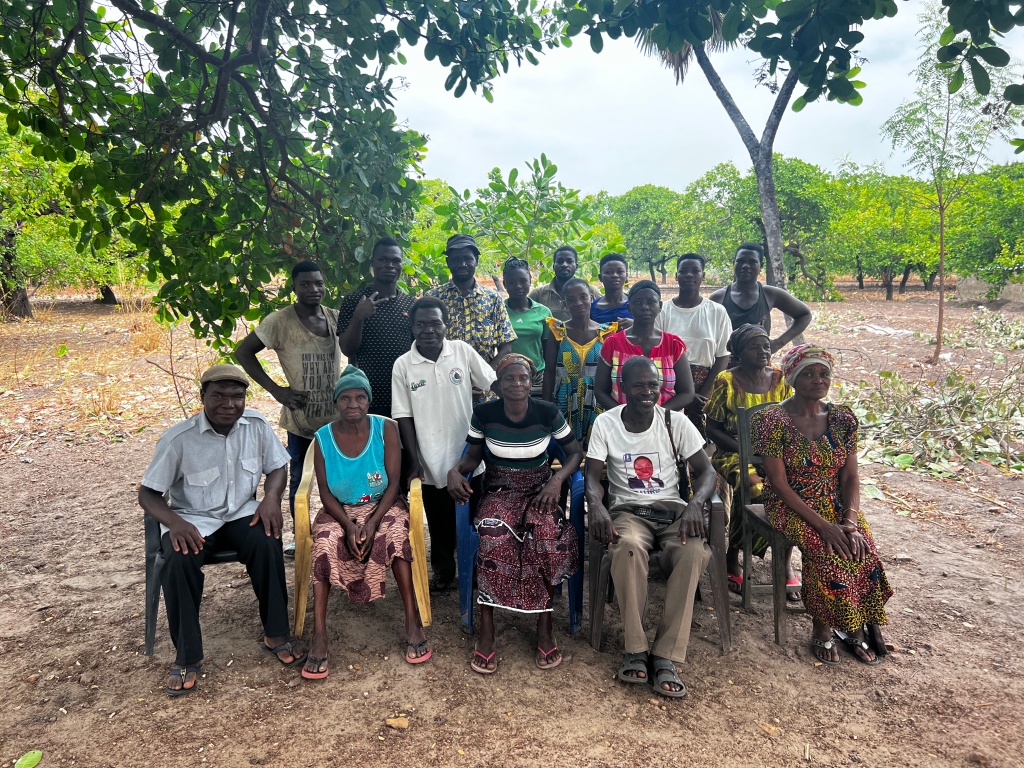
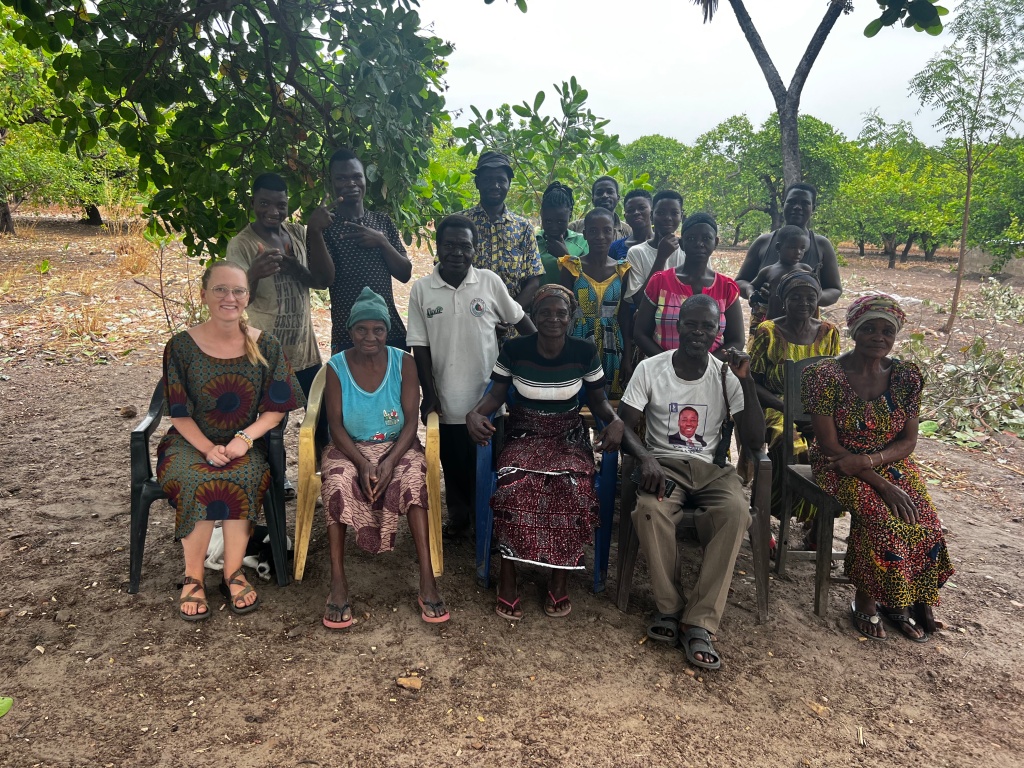
Neighborhood meetings
Katja (a friend and fellow volunteer in a nearby village) and I have begun a series of talks we are calling “Tchilalo Chats.” We were both given the same local name, Tchilalo, which seems to be an endlessly funny thing to people in both our villages. In each talk we share information about a nutrient or aspect of health and how we can use agriculture to access that nutrient.
These have started off pretty well. There are challenges in having folks come or come on time. But for the people that do arrive, they are engaged and interested in the information. We hope it will continue to grow over time. It can be tricky to have people come to us, so we may soon start going to the people, and finding a ways to share the information directly with households.
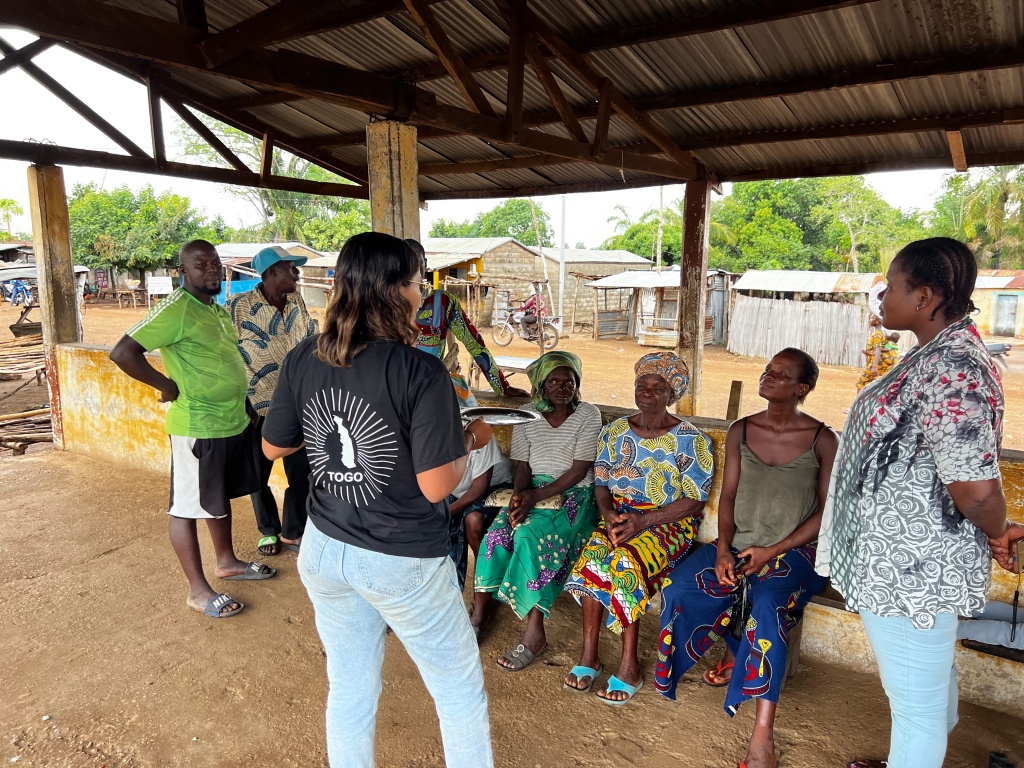
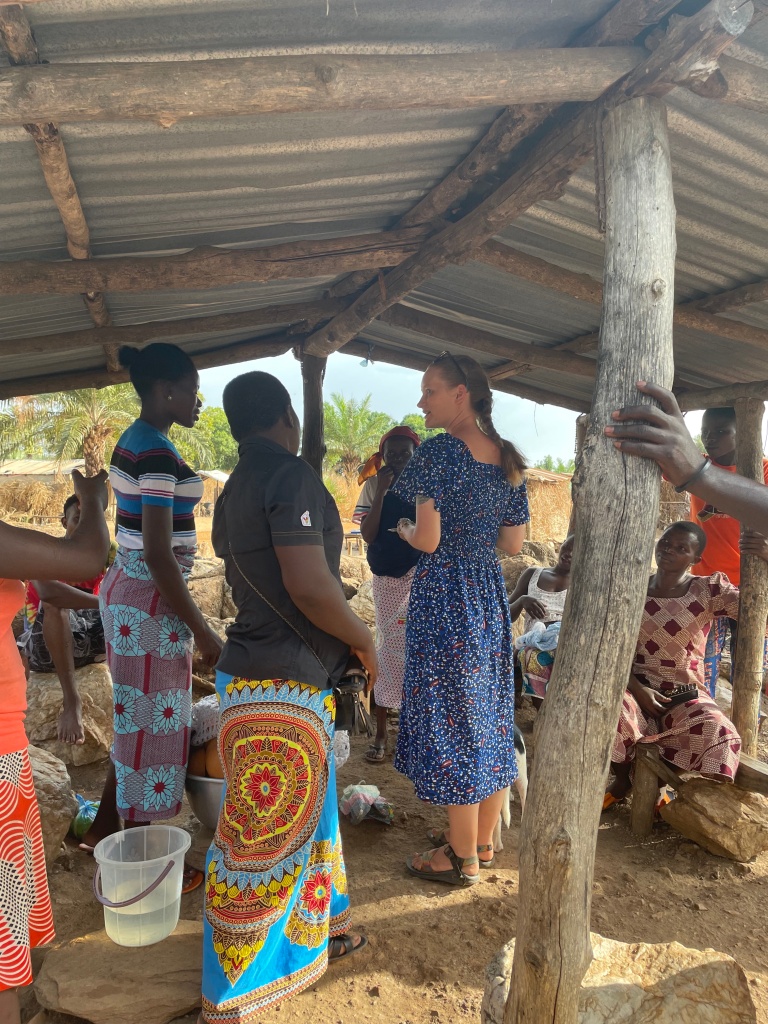
Discussing Iodine and testing salt during Tchilalo Chats. Thank you Katja for remembering to take a photo of me in action!
I have some new responsibilities within Peace Corps beyond my site. I am part of two new committees. I am secretary for the Climate Change and Food Security Committee, and I am chairperson for the Services Improvement Committee. I am hopeful that these will shape Peace Corps/Togo as an organizations, and set future volunteers up for success. I am also painting a fresco at our training center as a “welcome wall” for visitors. This coming summer I will also be a volunteer trainer for the incoming group of volunteers. Very soon, my cohort will no longer be the new guys!
All these projects in the village were getting on a roll right before I left for training in March. Unfortunately, I fell ill during training and had to spend another week away from my village. (I’m fine now). So it’s been a wobbly start to getting projects rolling again. And I’m soon off to another training, which makes it especially tricky to get back in the groove.
I have realized that part of my fatigue comes from inhabiting many worlds at once. Being a Peace Corps Volunteer means integrating in a community, working with folks day-by-day, side-by-side to accomplish “on the ground” work (literally on the ground for agriculture volunteers). It also means working for a major organization (Peace Corps) with a bureaucratic structure that needs you to send emails, collect data, file reports, and attend trainings. In other words, I must culturally and socially integrate, but also be able to hop back in to “American mode” at the drop of a hat. It’s not easy.
But I’ll keep climbing up the mountain and keeping my eyes peeled for a good vista. I’m only getting stronger as I go along. And I’ll enjoy the rain as it slows things down a bit, which will give me the time to make the most of those moments.
A few final thoughts and updates
Zorro continues to grow every day — and somehow keeps getting cuter. People are impressed by how pretty he is and how loyal he is to me. My host mom took good care of him while I was away, but he seems determined to never let me leave again.
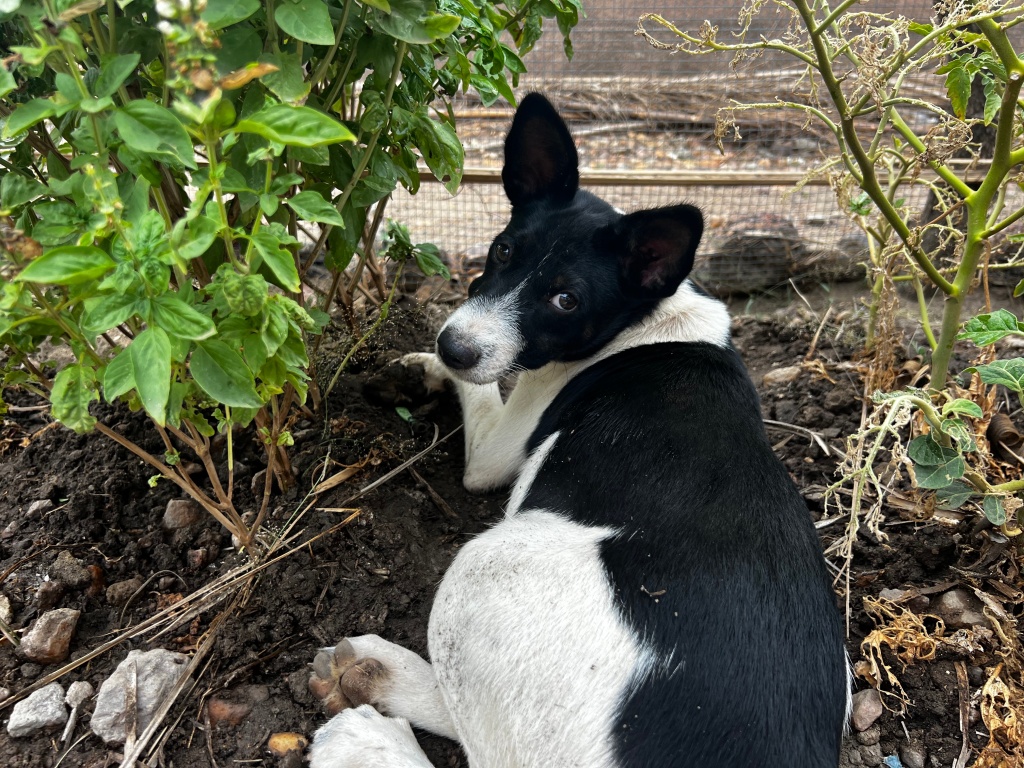
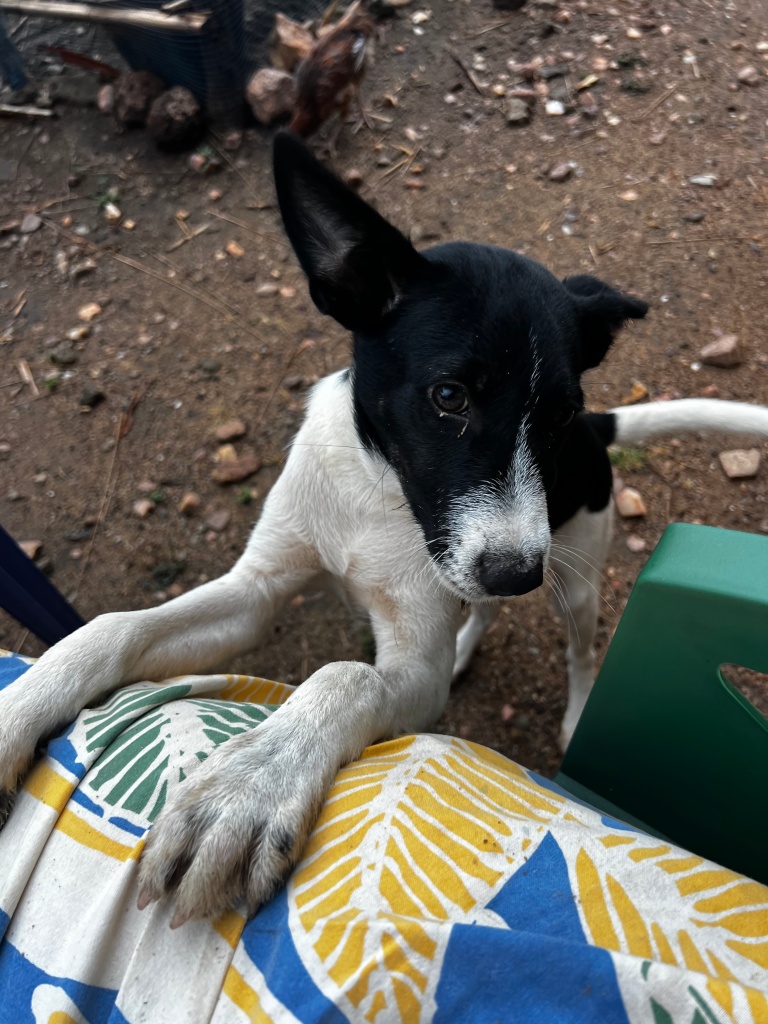
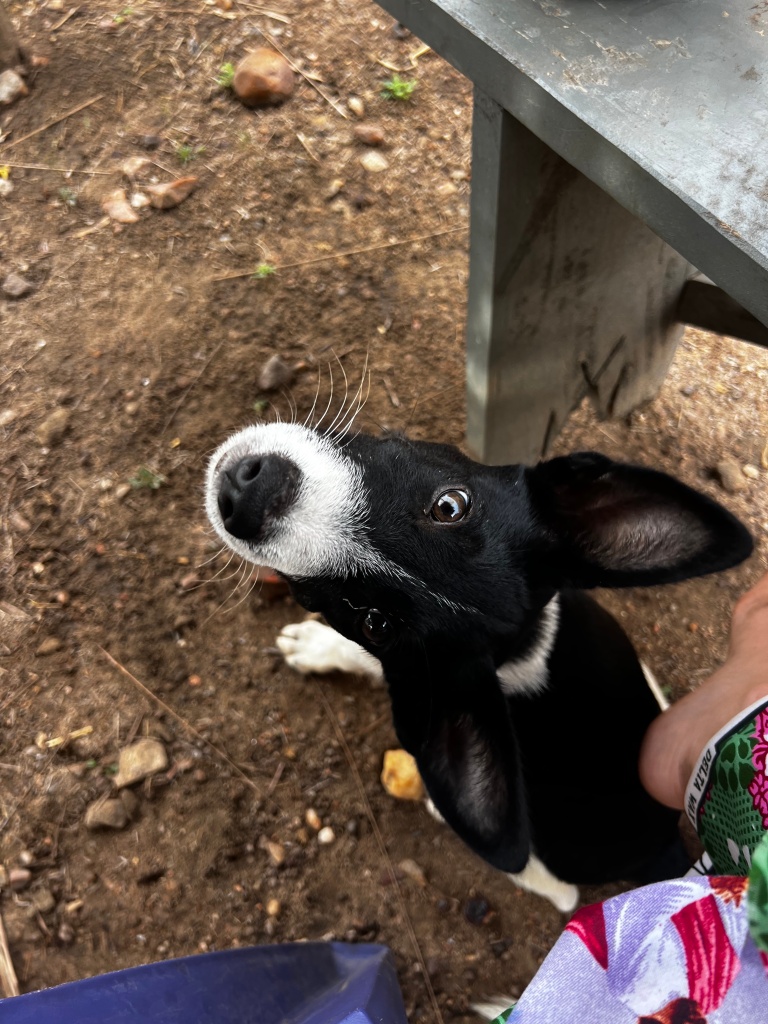
I am feeling more comfortable in Kabye. I’m definitely picking up the topic and flow of conversations more easily; although my ability to contribute is still limited. I have been able to joke around in Kabye a few times at the chouk bar which got everyone laughing with delight. (That felt really good).
For 2024, my reading goal is to read twelve books about Togo or written by Togolese authors. In January I read Do They Hear You When You Cry by Fauziya Kassindja. I’m in the midst of The Fixer by anthropologist Charles Piot now. I’d recommend both! I find these especially interesting because they allow me to understand Togo better, and piece together my own observations of the place. I am curious to know how folks outside of Togo would react to the books. So if anyone wants to read along with me, I’d love to talk!

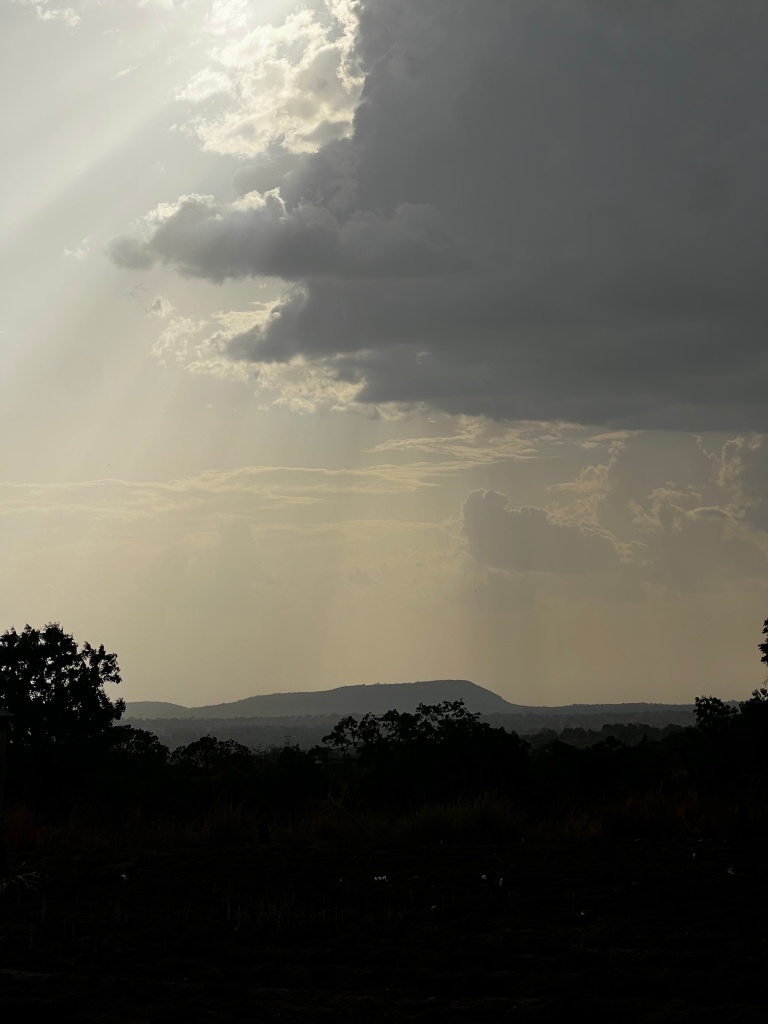
I’m so happy the dust of Harmattan is gone. I can see the mountains surrounding my village again. And with the rain slowly starting, things are turning green once again and the sky is putting on a real show with amazing clouds and sunsets.
Janet, You’re fantastic. Thank you for sharing your interesting and inspiring letter. I hope it gets distributed to all young and young at heart, potential Peace Corps Volunteers. Be well and travel safe. Jim w